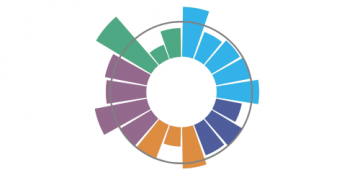Wir denken heute schon an morgen!
Das Instrument KLIC Gesundheit 2050 bietet regionalen Entscheidungsträgerinnen und Entscheidungsträgern die Möglichkeit, notwendige klimawandelbedingte Anpassungsmaßnahmen in den Bereichen Gesundheits‐ und Langzeitpflegeversorgung gemeinsam mit der Bevölkerung vor Ort zu entwickeln. Methodisch basiert der KLIC Gesundheit 2050 auf einem international anerkannten Rahmenwerk der Weltgesundheitsorganisation (WHO).
In Form einer systematischen Datenanalyse werden dazu zunächst regionale Vulnerabilitäten, Versorgungskapazitäten (status quo) und prognostizierte klimawandelbedingte Risiken erhoben. Davon abgeleitet werden in einem Bevölkerungsbeteiligungsprozess gemeinsam mit Bewohner:innen der Region Anpassungsmaßnahmen identifiziert, die ergriffen werden können, um Potenziale für gesundheitsfördernde und nachhaltige Lebenswelten zu gestalten und die Klimaresilienz zu erhöhen.
Ablauf KLIC Gesundheit 2050

Gemeinsam mit Ihnen arbeiten wir an der Beantwortung folgender Fragen:
- Inwiefern ist Ihre Region anfällig für die gesundheitlichen Folgen des Klimawandels etwa hinsichtlich der Altersstruktur, sozioökonomischen Merkmale bzw. Vorerkrankungen der Wohnbevölkerung?
- Welche Anpassungsmaßnahmen können in Ihrer Region ergriffen werden, um Potenziale für gesundheitsfördernde und nachhaltige Lebenswelten zu gestalten und die Klimaresilienz zu erhöhen?
- Wie können die Potenziale in der Gesundheits‐ und Langzeitpflegeversorgung ausgebaut werden, um auf die gesundheitlichen Auswirkungen des Klimawandels zu reagieren?
Im Jahr 2023 wurde der KLIC Gesundheit 2050 in der KLAR! Waldviertler Kernland pilotiert. Die Ergebnisse wurden in Form eines Regionalprofils aufbereitet und können Entscheidungsträgerinnen, Entscheidungsträgern und regionalen Netzwerken als Entscheidungsgrundlage für Klimawandelanpassungsmaßnahmen im Bereich Gesundheit dienen. Für die Durchführung des KLIC Gesundheit 2050 sind ca. 6 bis 8 Monate einzuplanen.
Möchten Sie Ihre Region auf die Zukunft vorbereiten?
Kontakt: Ilonka Horváth (ilonka.horvath@goeg.at)
Weiterlesen:
- Factsheet KLIC Gesundheit 2050
- Methodenbericht Klimaresilienz‐Check Gesundheit 2050 für Gemeinden und Regionen
- Regionalprofil KLAR! Waldviertler Kernland
- Regionalprofil KLAR! Waldviertel Nord
- Regionalprofil Römerland Carnuntum
- Regionalprofil Tiebeltal und Wimitzerberge
- Partizipatives Climate Proofing des Gesundheitswesens 2050
Climate Resilience Check Health 2050 [English]
We are already thinking about tomorrow!
The “KLIC Gesundheit 2050” (KLIC Health 2050) assessment tool offers regional decision-makers the opportunity to develop necessary climate change-related adaptation measures in the areas of health and long-term care together with the local population. Methodologically, KLIC Health 2050 is based on an internationally recognized framework of the World Health Organization (WHO). In the form of a systematic data analysis, vulnerability factors at regional and municipal level, health and care capacities, and future risks are assessed. In a public participation process, adaptation measures are developed together with the regional population, aiming to identify potential wins for health-promoting and sustainable living environments and to increase climate resilience. The KLIC Health 2050 addresses the following questions:
- To what extent is the region vulnerable to the health effects of climate change, for example, with regard to the age structure, socio-economic characteristics, or pre-existing conditions of the resident population?
- What adaptation measures can be taken in the region to unfold potentials for health-promoting and sustainable living environments and to increase climate resilience?
- How can the potentials in health and long-term care provision be expanded to respond to the health impacts of climate change?
Results of the assessment are subsequently prepared in the form of a regional profile and serve as a basis for decision-making for climate change adaptation measures in the health sector for decision-makers and regional networks. For the implementation of the “KLIC Health 2050”, approximately six to eight months should be planned.
Contact: Ilonka Horváth (ilonka.horvath@goeg.at)
Read more: Factsheet KLIC Health 2050 [English]


